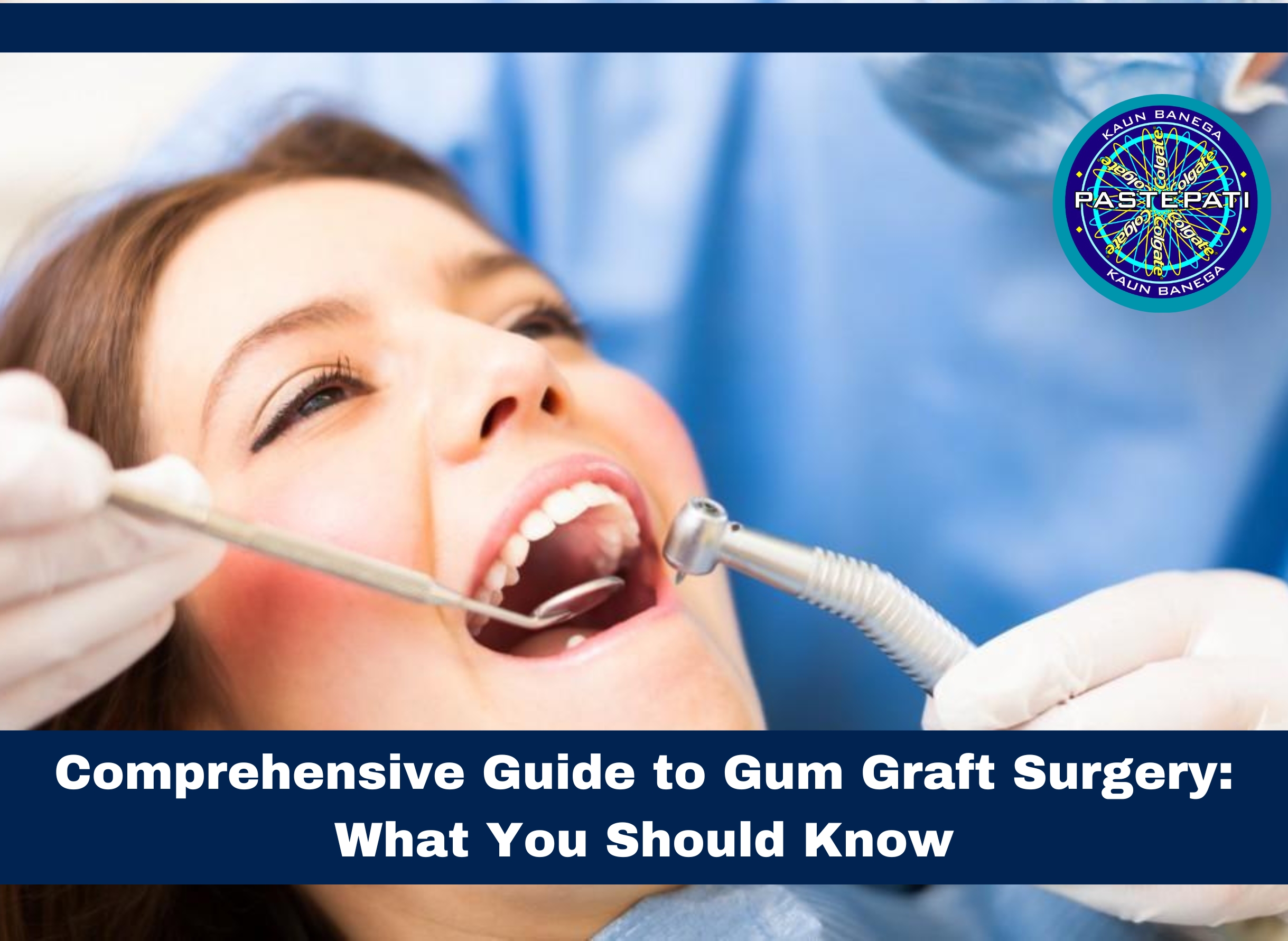Are your wisdom teeth causing you discomfort? Third molars, commonly referred to as wisdom teeth, usually emerge during the period spanning from 17 to 25 years of age. While some individuals may experience no issues with their wisdom teeth, others may encounter various problems that necessitate their removal. At Kaun Banega Pastepasti, the leading dental clinic in Ludhiana, we understand the importance of proactive dental care. In this article, we’ll explore eight signs that indicate it may be time to bid farewell to your wisdom teeth.
Read: Choosing the Best Toothbrush and Toothpaste: A Complete Guide
1. Persistent Pain and Discomfort:
Persistent pain and discomfort originating from the back of the mouth often signal underlying issues with the wisdom teeth. This discomfort may manifest as a dull ache or sharp pain and can significantly impact daily activities such as eating and speaking. Impaction, a common cause of this pain, occurs when the wisdom teeth become trapped beneath the gum line or grow in at an angle, exerting pressure on surrounding teeth and tissues.
2. Difficulty in Proper Oral Hygiene:
Due to their location at the back of the mouth, wisdom teeth can present challenges in maintaining proper oral hygiene. Limited accessibility makes it difficult to thoroughly clean these teeth with a toothbrush or floss, leading to the accumulation of plaque and bacteria. Without adequate hygiene practices, the risk of gum disease, cavities, and infection increases. Despite diligent brushing and flossing, reaching wisdom teeth may remain problematic, necessitating specialized oral care techniques and regular dental check-ups to prevent complications.
3. Swelling and Redness:
Swelling, redness, and tenderness in the gum tissue surrounding the wisdom teeth often indicate inflammation or infection. These symptoms may be accompanied by discomfort when chewing or biting, difficulty opening the mouth fully, or a persistent bad taste. Inflammation and infection can arise due to various factors, including impaction, bacterial buildup, or trauma to the gum tissue. Prompt evaluation and treatment by a dental professional are essential to address the underlying cause and prevent further complications.
Read: Getting Your Child Ready for Their First Dental Appointment
4. Jaw Stiffness and Pain:
The presence of impacted wisdom teeth can exert pressure on the surrounding teeth and jawbone, resulting in jaw stiffness, pain, and difficulty with mouth movement. Persistent discomfort or difficulty in fully opening and closing the mouth may indicate underlying issues related to the wisdom teeth. This stiffness and pain can significantly impact daily activities such as eating, speaking, and yawning, prompting the need for evaluation by a dental professional.
5. Crowding of Teeth:
The emergence of wisdom teeth may cause the alignment of current teeth to be disturbed, resulting in crowding or shifting within the dental arch. This crowding can affect the overall bite and dental alignment, potentially necessitating orthodontic treatment to correct the issues caused by the wisdom teeth. If you notice changes in the alignment of your teeth or experience discomfort due to crowding, it may be indicative of underlying problems associated with the eruption of wisdom teeth.
Read: Interactive Activities for Tiny Teeth: Nurturing Healthy Smiles
6. Sinus Problems:
Impacted wisdom teeth located in the upper jaw may exert pressure on the sinuses, leading to sinus pain, pressure, and congestion. This pressure on the sinus cavities can result in recurrent sinus issues such as sinus headaches, facial pain, and nasal congestion. If you experience persistent sinus problems without any other apparent cause, it is essential to consider the possibility of impacted wisdom teeth contributing to the symptoms. Evaluation by a dental professional can help determine the underlying cause and appropriate treatment options.
7. Cysts or Tumors:
The presence of impacted wisdom teeth can sometimes lead to the development of cysts or tumors in the jawbone. These abnormal growths can cause damage to the surrounding teeth, jawbone, and nerves if left untreated. Regular dental check-ups, including X-rays, are essential for detecting any potential cysts or tumors associated with impacted wisdom teeth. Early detection allows for timely intervention and appropriate treatment to prevent further complications.
8. Difficulty Eating:
Impacted wisdom teeth can cause pain or discomfort while chewing, making it challenging to eat certain foods comfortably. If you experience difficulty chewing or prefer to chew on one side of your mouth to avoid discomfort, it may indicate underlying issues with your wisdom teeth. Difficulty eating can impact your nutrition and overall quality of life, underscoring the importance of addressing any concerns related to impacted wisdom teeth with your dental provider.
Read: Oral Care for Different Life Stages: From Kids to Seniors
Conclusion
As the best dental clinic in Ludhiana, we prioritize the oral health and well-being of our patients. If you’re experiencing any of the signs mentioned above, it may be time to schedule a consultation with one of our experienced dentists. Through personalized care and treatment options tailored to your needs, we can help address issues related to your wisdom teeth and restore your oral health. Don’t let wisdom teeth problems hold you back – contact us today to take the first step towards a healthier smile.



